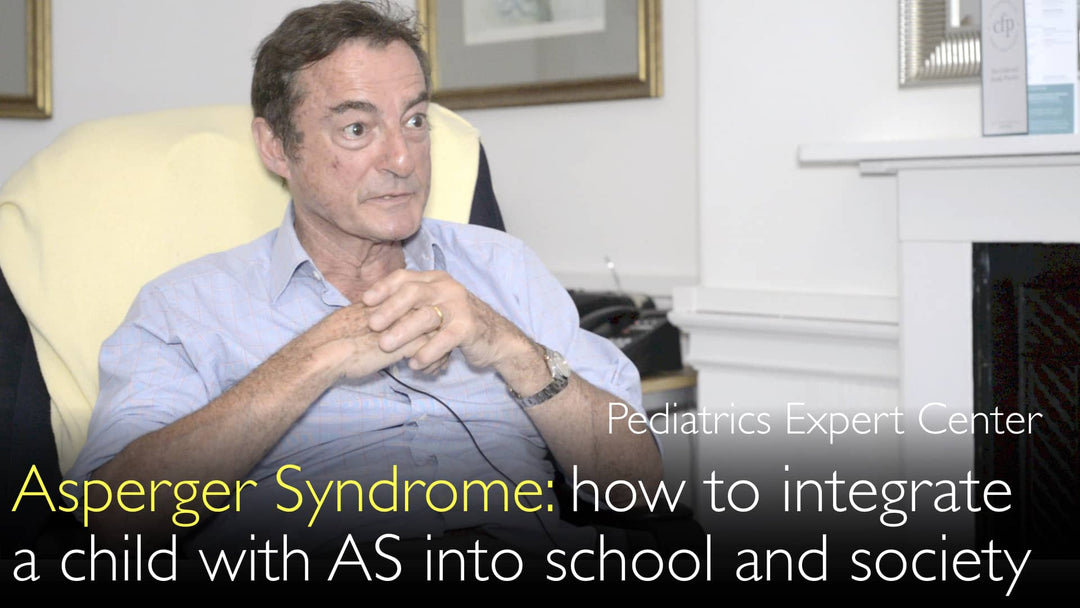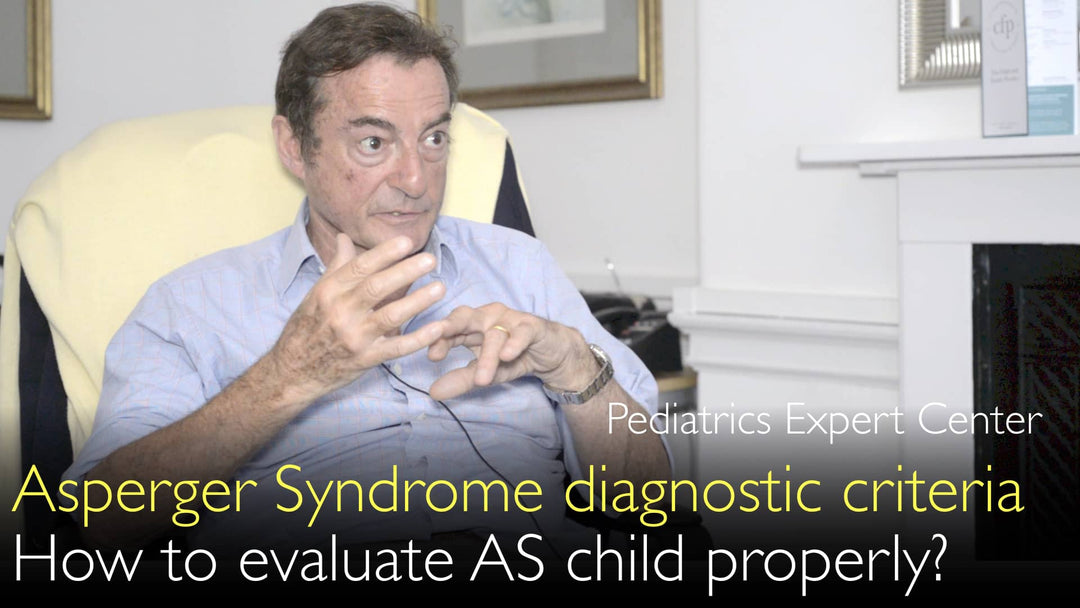Leading expert in integrative medicine for ADHD, Dr. Sanford Newmark, MD, explains how a holistic approach dramatically reduces medication use. He details a comprehensive evaluation process that starts with a complete patient history. Dr. Sanford Newmark, MD, emphasizes dietary changes, nutrient testing, and school and parenting strategies. His integrative practice prescribes stimulant medication to only 25% of children with ADHD. This contrasts sharply with the 70-75% medication rate in traditional practices.
Holistic ADHD Treatment: Reducing Medication Use Through Comprehensive Care
Jump To Section
- Integrative ADHD Medication Rates
- Holistic ADHD Evaluation Process
- Dietary Interventions for ADHD
- Nutritional Supplements for ADHD
- Behavioral and School Support
- Importance of ADHD Diagnosis
- Full Transcript
Integrative ADHD Medication Rates
Dr. Sanford Newmark, MD, reports a stark contrast in medication use between integrative and traditional ADHD practices. In his clinical experience, only about 25% of children with ADHD require stimulant medication. This figure is significantly lower than the national average, where nearly 70-75% of diagnosed children receive pharmaceutical treatment.
Dr. Newmark attributes this difference to two main factors. His patient population often seeks non-pharmaceutical solutions first. More importantly, a meticulous diagnostic process often reveals that some children do not truly have ADHD, eliminating unnecessary medication use from the start.
Holistic ADHD Evaluation Process
A correct ADHD diagnosis is the critical first step in any treatment plan. Dr. Sanford Newmark, MD, begins with an exceptionally thorough patient history. This comprehensive intake allows him to understand the child's complete clinical picture and identify the most pressing issues.
Dr. Anton Titov, MD, highlights the value of this approach for ensuring an accurate diagnosis. Dr. Newmark’s method is not a one-size-fits-all solution. Instead, he prioritizes interventions, tackling the most important areas for each individual child first and building a personalized, step-by-step treatment plan over time.
Dietary Interventions for ADHD
Dietary modification is a cornerstone of Dr. Newmark's initial ADHD treatment strategy. He advises all families to eliminate artificial colors and flavors from their child's diet immediately. A foundational healthy diet is essential, focusing on high-quality protein and minimizing processed carbohydrates, snacks, and white flour.
For many children, Dr. Sanford Newmark, MD, implements an elimination diet. This process helps identify specific food sensitivities that may be exacerbating ADHD symptoms. This nutritional approach provides a powerful non-pharmaceutical tool for managing behavior and improving focus.
Nutritional Supplements for ADHD
Beyond diet, targeted nutritional support plays a key role in integrative ADHD care. Dr. Newmark recommends omega-3 fish oil supplements for almost every child with ADHD. He also utilizes laboratory blood tests to check for specific nutrient deficiencies.
Common deficiencies addressed include iron, zinc, and vitamin D. Supplementing these essential nutrients based on individual test results can correct underlying physiological imbalances that contribute to attention and behavioral challenges, further reducing the need for medication.
Behavioral and School Support
Dr. Sanford Newmark, MD, emphasizes that ADHD management extends beyond nutrition and supplements. He consistently discusses effective parenting approaches tailored for children with ADHD. A supportive and structured home environment is crucial for a child's success.
Dr. Newmark also evaluates the child's school situation. He assesses whether teachers and the educational environment are supportive or potentially making symptoms worse. Addressing these behavioral and environmental factors is an integral part of a holistic treatment plan that optimizes a child's ability to thrive.
Importance of ADHD Diagnosis
The conversation between Dr. Anton Titov, MD, and Dr. Newmark underscores that a precise diagnosis is the bedrock of effective treatment. A medical second opinion can be invaluable for confirming an ADHD diagnosis and ensuring it is complete. This process helps establish a differential diagnosis, ruling out other conditions that mimic ADHD symptoms.
Dr. Sanford Newmark, MD, confirms that this rigorous diagnostic principle applies to all medicine, not just ADHD. Eliminating misdiagnosis is a primary reason his practice achieves such a low medication rate. A correct diagnosis ensures that treatment, whether pharmaceutical or holistic, is truly necessary and appropriately targeted.
Full Transcript
Only 25% of kids with attention deficit hyperactivity disorder need medications in integrative medicine ADHD clinical practice. This is compared with 75% of ADHD medication use in a typical ADHD pediatric practice.
How to make a holistic evaluation of a child with a possible ADHD diagnosis? A leading expert on the integrative medicine approach to ADHD discusses how to treat ADHD correctly.
ADHD diagnosis medical second opinion is always the best way to make sure that ADHD is correctly diagnosed before treatment starts.
Dr. Anton Titov, MD: Video interview with a top expert in holistic treatment of ADHD, Dr. Sanford Newmark, MD. ADHD without drugs. ADHD diagnosis medical second opinion helps to make sure the diagnosis of ADHD (ADD) is correct and complete. It helps to establish a differential diagnosis in ADHD. Medical second opinion also helps to choose the best treatment and best nutrition support.
ADHD diagnosis medical second opinion requires a holistic and integrative medicine approach. ADHD diagnosis in adults can be verified by a specialist online with some certainty.
Dr. Anton Titov, MD: How to know if you have ADD or ADHD? Many people are labeled to have attention deficit, but does it mean they fulfill diagnostic criteria for ADHD? Dr. Sanford Newmark, MD. Medical second opinion can help to remove uncertainty about ADHD diagnosis.
In integrative medicine ADHD practice, only 25% of kids with ADHD require medications and pharmaceutical treatment. In traditional ADHD practice, more than 70% of children with ADHD receive stimulant medications.
Holistic approach to ADHD diagnosis and treatment helps to successfully reduce doses of medications and shorten duration of treatment. Video interview with a top expert in pediatric attention deficit hyperactivity disorder (ADHD, ADD) and autism.
Medical second opinion confirms that ADHD diagnosis is correct and complete. Medical second opinion also confirms that ADD treatment is required. It helps to choose the best treatment for autism and ADHD.
Get medical second opinion on ADHD and autism spectrum disorder and be confident that your treatment is the best. ADHD diagnosis medical second opinion is an important factor to make sure that ADHD treatment is required.
Dr. Anton Titov, MD: We have had a very detailed discussion about the diagnosis of ADHD. We talked about holistic approaches to treatment. We discussed behavioral and nutritional methods of ADD treatment. We discussed other complementary approaches to treat ADHD.
How does one put a complete ADHD evaluation picture together? What kind of holistic approach to ADHD diagnosis do you use in your practice?
Dr. Sanford Newmark, MD: You start with taking a very complete patient’s history. From that complete history, you think about the immediate things that we need to do. Where is the biggest problem? What do we need to do?
Usually, diet is the first method of therapy in ADHD kids. In every child, I am looking at their diet. I am making sure they are not eating artificial colors and flavors. Children with ADHD have to eat as well as they can.
Kids with ADHD must be eating healthy meals, with a good amount of protein. They should not eat a lot of processed carbohydrates. They should not eat a lot of snacks and crackers, white flour. That's true for everybody with ADHD.
Some of these kids will then get an elimination diet. We have to see if they are sensitive to specific food. Almost everybody gets fish oil. I do laboratory blood tests. I check if they need iron or zinc supplementation, or even vitamin D.
Then from there, we work on what needs to be the next steps. I always talk about parenting approaches to ADHD kids because that's important. Then we have to look at the school. Is the school situation correct? Do you have a school where teachers are trying to do their best for this child and help them? Or are they just making things worse?
You have to look at each area of the child’s life. It's not an all-in-one thing. It's not like in one visit I can say, "You have to do this, this, this, this, and this," because nobody can do that for a child with ADHD.
Over time, we do what's important first. We do the most important things first, then you go on.
Dr. Anton Titov, MD: Perhaps there is no hard data on this, but perhaps you can estimate this number. What is the percentage of children in your integrative medicine ADHD practice who will need pharmaceutical medication?
How does your practice compare with the traditional approach? Traditionally, there is a more pharmaceutical-based approach to treating ADHD in children. What percentage of kids with ADHD do you treat with medications in your practice?
Dr. Sanford Newmark, MD: Correct, that's a good question. As you said, there's no actual data on this except this: we know that almost 70% of kids diagnosed with ADHD in this country get stimulant medication.
I would say in my practice, it is probably 25% of kids with ADHD get stimulant medications. Now, I have a different practice because the people who come to see me in general are not the people who would like to take medications right away.
I have to say it's a little different. But then again, some other people come to see me. They have had problems with ADHD for a long time. They have somewhat difficult kids with ADHD. I have a different situation than the average pediatrician or developmental pediatrician who might see a lot of people who say, "Does my son have ADHD? When kids have ADHD, let’s give them medications."
A lot depends on your patient population. In my patient population, it may be around 25% of children with ADHD use medications.
Dr. Anton Titov, MD: We can take as a benchmark the 70% to 75% rate of medicating children with ADHD diagnosis. Integrative medicine approach to treating ADHD allows nearly three times less use of stimulant medications. Maybe even lower doses of ADHD medications can be used.
Despite the fact that the kids might come to your integrative practice with more severe or long-standing ADHD, this is a very dramatic result.
Dr. Sanford Newmark, MD: It is, but there's also the other side. A lot of people come to see me, but I don't think they have ADHD at all. That's included in statistics too.
When you do a careful diagnostic evaluation of ADHD, you can eliminate a lot of medication use. Part of that is seeing kids who have ADHD and being able to treat them in a different way. The other part is to eliminate the kids who don't really have ADHD.
Dr. Anton Titov, MD: Before providing correct and integrative approach to ADHD treatment, the key is establishing the correct diagnosis.
Dr. Sanford Newmark, MD: Which is true really for all of medicine, not just for ADHD.
Dr. Anton Titov, MD: Dr. Newmark, thank you very much for this very thorough discussion of ADHD. Thank you for discussing ADD diagnosis and integrative approach to treatment of ADHD.
I'm sure that many parents and our viewers will find this discussion very useful. They will find your book to be a very useful companion to this discussion. Your book is titled "ADHD Without Drugs: A Guide to the Natural Care of Children with ADHD". An updated edition is now available as an eBook. Thank you, Dr. Newmark!
Dr. Sanford Newmark, MD: Well, thank you, it's been a pleasure.
ADHD diagnosis medical second opinion. Video interview with a top expert in holistic treatment of ADHD. How to put together a holistic treatment plan for an ADHD kid.







